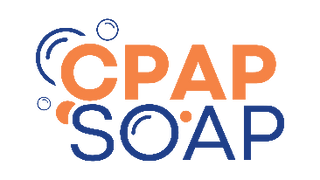
-
Designed to be compatible with the materials used in CPAP equipment and crafted to effectively remove residue without causing damage.
-
CPAP Soap Bubble Pads are particles from the face mask, while CPAP Soap packets should be used weekly to wash mask, hose, and water chamber.
-
Does not contain SLS (Sodium Lauryl Sulfate). SLS is a foaming agent found in many soaps and detergents that can irritate the skin by stripping away the upper dermis layer.
-
CPAP Soap does contain SLES, or Sodium Laureth Sulfate, which is a milder derivative of SLS that doesn't remove skin layers or provoke irritation. It's often used as a gentler alternative to SLS in various products such as soaps, detergents,cleaning agents, and makeup removers.
-
CPAP Soap is fragrance free. Fragrances are frequent culprits in causing contact allergies, leading to issues like dermatitis, dryness, and sensitivity.
-
CPAP Soap Bubble Pads are alcohol free. Although alcohol wipes are popular, they can potentially be harmful to CPAP equipment due to their potential to degrade certain materials. Additionally, alcohol may not effectively remove all types of residue or buildup from CPAP equipment, especially oils and greases from the skin. This residue can accumulate over time and contribute to bacterial growth and/or unpleasant odors.






